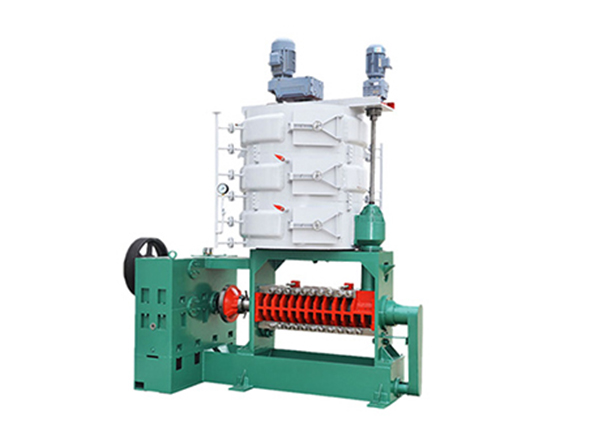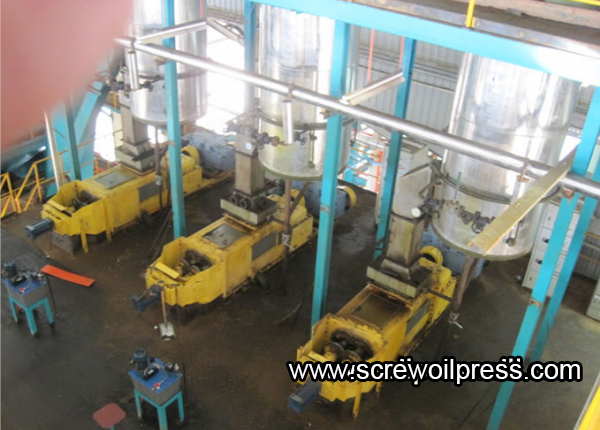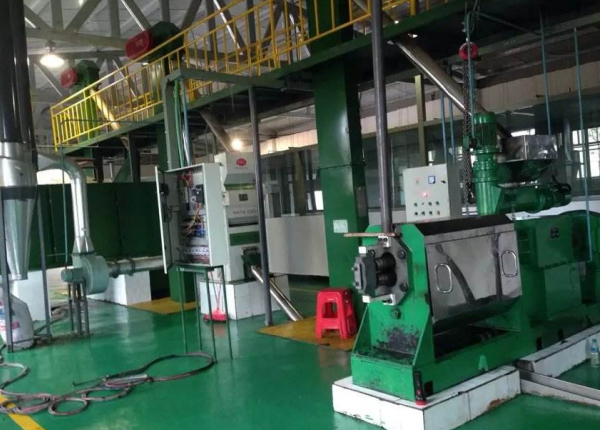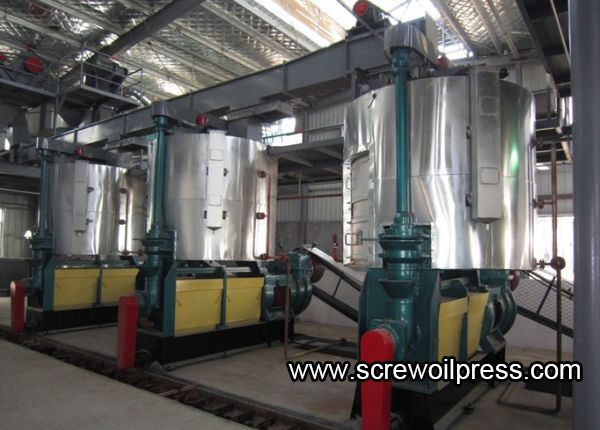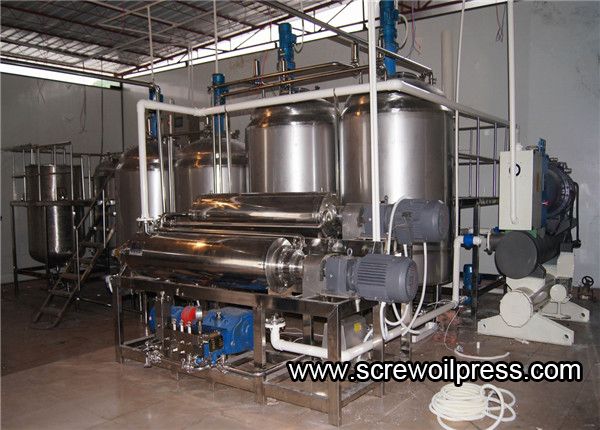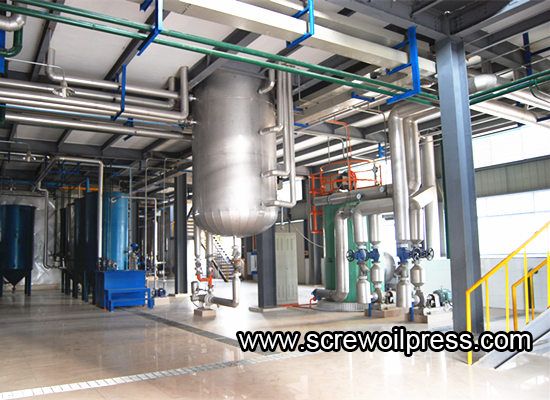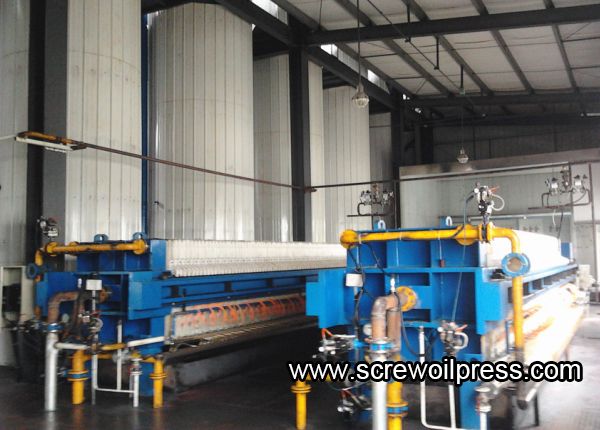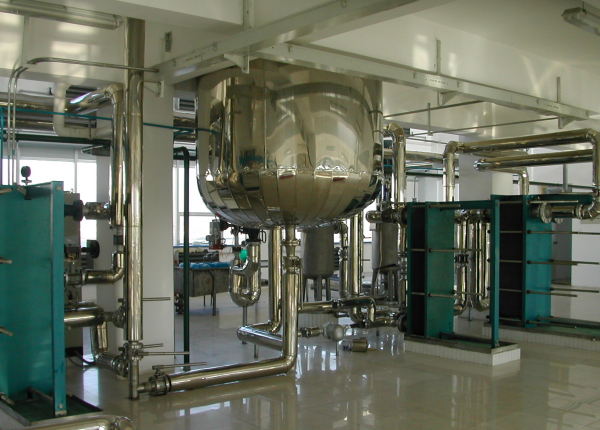- Oil Mill Machinery
- Oil Refinery Machinery
- Oil Processing Plant
- Solvent Extraction Plant
- Animal Oil Processing Machine
- Feed Processing Machine
- Palm Oil Mill
- Industrial Drying Machine
- Grain Processing Machinery

Oil Refinery Machinery
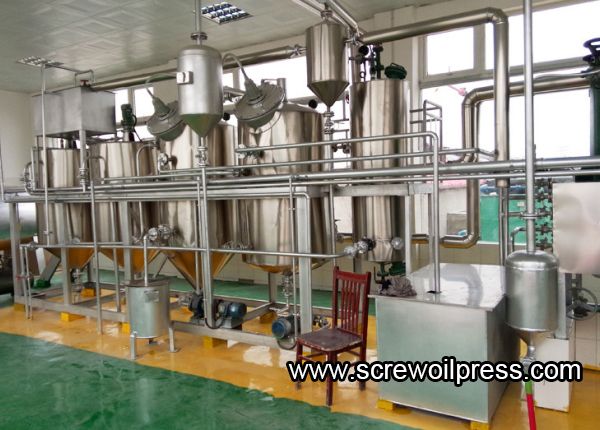
Chemical Batch & Physical Continuous Oil Refinery Machine
Provides complete solution for Batch & Continuous type Edible Oil Refinery Plant, capacity to design, build and supply Plants from 1 tonne to 600 tonnes per day Cooking Oil Refinery We present one of the developed Cooking Oil Refinery Plant
SEND INQUIRY
Description
complete solution for Batch & Continuous type Edible Oil Refinery Plant
We provides complete solution for Batch & Continuous type Edible Oil Refinery Plant, capacity to design, build and supply Plants from 1 tonne to 600 tonnes per day.
Offering you a complete choice of products which include Physical Refinery Plant and Physical Refinery.
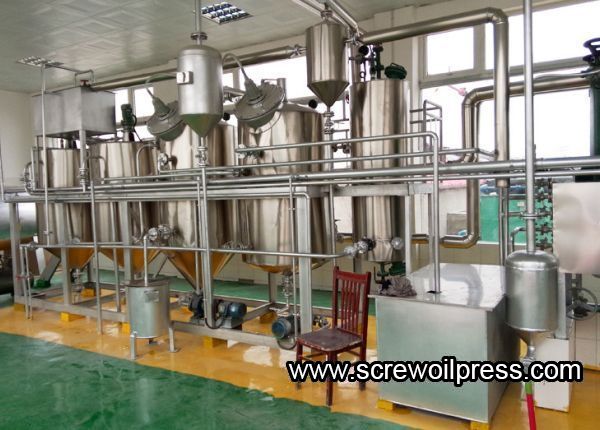
Cooking Oil Refinery
We present one of the developed Cooking Oil Refinery Plant for processing of edible oil. There are primarily involved two types of processing- batch type and continuous. Through these processes, the oil is separated from impurities and other materials that can make it unfit for edible purpose. The refinery plants process the oil in a series of procedures like neutralizing, bleaching and deodorizing.
The oil finally produced from the processing plant is of god quality with light color. Also, we take care that free fatty acids present in oil can be also filtered out for edible grade. In addition to this, for sunflower and rice bran oil, an addition process of dewaxing is also carried out for separating our wax.
Process Description of Edible Oil Refinery Plant
As per the today market research it is being concluded that the market demands the refined edible oil with characteristics such as bland flavour and odour, clear appearance, light colour, Long Shelf Life, Suitable for frying since the Crude Oil obtained does contains many harmful factors like free fatty acids (FFA), sediments, gums, odoriferous material & other impurities.
We with an experience of more than 4 decades in the Edible Oil Industry have worked unremittingly in more than 60 countries of the world and have developed overall solutions for the Edible Oil Refinery needs of the Customers.
The refining of edible oils & fats is required after solvent extraction since the Solvent Extracted Crude oil does contains inherent harmful constituents like Free Fatty Acids (FFA’s), gums, sediments, odoriferous and colourings material, phosphatides, hydrocarbons, traces of pesticides & heavy metals etc.
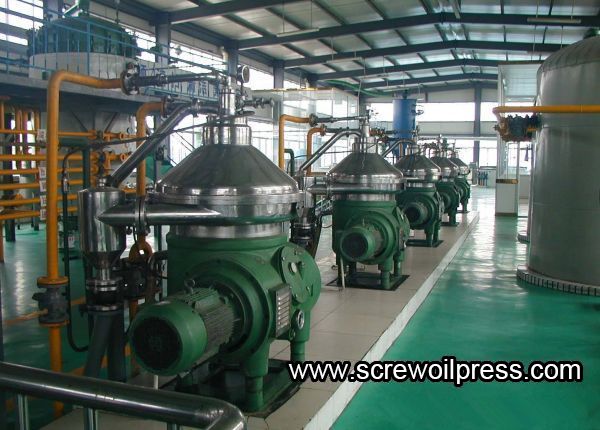
Following sections depending on the nature of the oil either soft or hard oil:
Degumming, Neutralization & Water Washing.
Bleaching
Winterization / Dewaxing Plant
Deodorization
Palm Oil Fractionation Plant
Hydrogenation Plant
Degumming, Neutralization & Water Washing
Degumming is a process of removing phospholipids to improve its physical stability and facilitate further refining. Phospholipids may lead to the dark colored oil and they may also lead to off -flavour. Free fatty acids, pigments and other impurities are also partially removed by degumming.
We follows different type of degumming processes like Water Degumming/Acid Degumming/ Enzymatic Degumming. These processes are being selected based on methods of processing, chemicals used and the content of phosphatides in the crude vegetable oil.
Neutralizing of the free fatty acids with a slight excess of sodium hydroxide solution, followed by the washing out of soaps and hydrated phospholipids.
Bleaching
The bleaching of edible oils and fats is an important part of the refining process of crude oils and fats. It does remove the several contaminations which impacts adversely the physical appearance and quality of the oil. Generally the oil after degumming / neutralization also does have impurities in various quantities. Many of these impurities have to be removed from the oil to achieve the high quality oil for the edible use.
Bleaching with natural or acid-activated clay minerals to adsorb coloring components and to decompose hydro peroxides.
Deodorization
Deodorization is done to remove the volatile components, mainly Aldehydes & Ketones, with threshold values for dictation by taste or smell. Deodorization is essentially a steam distillation process carried out at low pressure 2-6 Kg/Cm2 and elevated temp range of 180-260°C.
The entire process is done under high vacuum. The smell is removed in the deodorizer. The FFA is also removed in the Physicaltype deodorizer.
Winterization / Dewaxing Plant
Winterization / Dewaxing are almost the same process. This process is applied to remove small quantities of solids from oil that would normally cause cloudiness of the oil when kept at refrigeration temp.
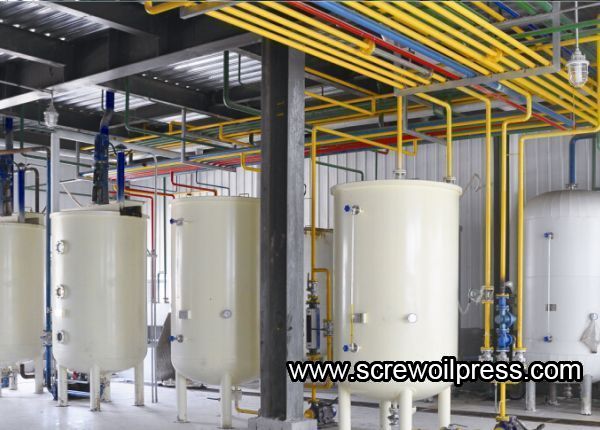
These substances can be saturated glycerides or waxes. Waxes are esters for fatty alcohol and fatty acid, which have a very low solubility in oil. There quantity is different in different oils.
In this process cooling rate & agitation are carefully controlled to promote the formation of nuclei that will serve as the sites for crystal growth.
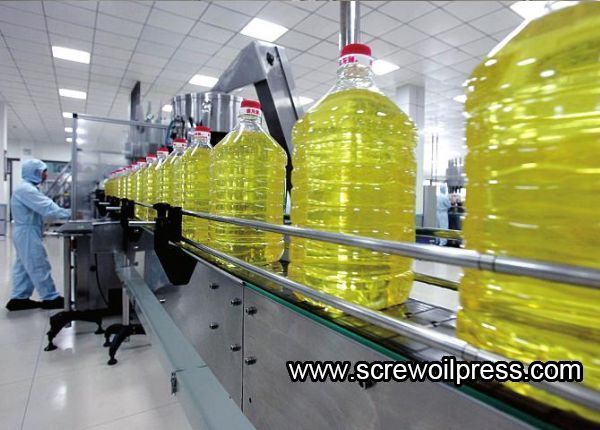
Edible Oil Refinery Plant
We bring forth the developed range of Edible Oil Refinery Plant, which is used for the processing of edible oil. Oil is processed in refinery through various processes such as deodorizing, bleaching and neutralizing. The edible oil refinery can refine almost all types of oils. The refined oil quality depends on the type of crude oil and its chemical structure.
Edible Oil Refinery Plant,oil refinery machine, oil refining plant, oil refinery, oil purity plant, oil refinery equipment, Groundnut oil refinery machine, peanut oil refinery machine, Sesame oil refinery machine,
if you want to know more the vegetable oil processing machines and cooking oil refinery plants, pls feel free to contact us.
We provides complete solution for Batch & Continuous type Edible Oil Refinery Plant, capacity to design, build and supply Plants from 1 tonne to 600 tonnes per day.
Offering you a complete choice of products which include Physical Refinery Plant and Physical Refinery.

Cooking Oil Refinery
We present one of the developed Cooking Oil Refinery Plant for processing of edible oil. There are primarily involved two types of processing- batch type and continuous. Through these processes, the oil is separated from impurities and other materials that can make it unfit for edible purpose. The refinery plants process the oil in a series of procedures like neutralizing, bleaching and deodorizing.
The oil finally produced from the processing plant is of god quality with light color. Also, we take care that free fatty acids present in oil can be also filtered out for edible grade. In addition to this, for sunflower and rice bran oil, an addition process of dewaxing is also carried out for separating our wax.
Process Description of Edible Oil Refinery Plant
As per the today market research it is being concluded that the market demands the refined edible oil with characteristics such as bland flavour and odour, clear appearance, light colour, Long Shelf Life, Suitable for frying since the Crude Oil obtained does contains many harmful factors like free fatty acids (FFA), sediments, gums, odoriferous material & other impurities.
We with an experience of more than 4 decades in the Edible Oil Industry have worked unremittingly in more than 60 countries of the world and have developed overall solutions for the Edible Oil Refinery needs of the Customers.
The refining of edible oils & fats is required after solvent extraction since the Solvent Extracted Crude oil does contains inherent harmful constituents like Free Fatty Acids (FFA’s), gums, sediments, odoriferous and colourings material, phosphatides, hydrocarbons, traces of pesticides & heavy metals etc.

Following sections depending on the nature of the oil either soft or hard oil:
Degumming, Neutralization & Water Washing.
Bleaching
Winterization / Dewaxing Plant
Deodorization
Palm Oil Fractionation Plant
Hydrogenation Plant
Degumming, Neutralization & Water Washing
Degumming is a process of removing phospholipids to improve its physical stability and facilitate further refining. Phospholipids may lead to the dark colored oil and they may also lead to off -flavour. Free fatty acids, pigments and other impurities are also partially removed by degumming.
We follows different type of degumming processes like Water Degumming/Acid Degumming/ Enzymatic Degumming. These processes are being selected based on methods of processing, chemicals used and the content of phosphatides in the crude vegetable oil.
Neutralizing of the free fatty acids with a slight excess of sodium hydroxide solution, followed by the washing out of soaps and hydrated phospholipids.
Bleaching
The bleaching of edible oils and fats is an important part of the refining process of crude oils and fats. It does remove the several contaminations which impacts adversely the physical appearance and quality of the oil. Generally the oil after degumming / neutralization also does have impurities in various quantities. Many of these impurities have to be removed from the oil to achieve the high quality oil for the edible use.
Bleaching with natural or acid-activated clay minerals to adsorb coloring components and to decompose hydro peroxides.
Deodorization
Deodorization is done to remove the volatile components, mainly Aldehydes & Ketones, with threshold values for dictation by taste or smell. Deodorization is essentially a steam distillation process carried out at low pressure 2-6 Kg/Cm2 and elevated temp range of 180-260°C.
The entire process is done under high vacuum. The smell is removed in the deodorizer. The FFA is also removed in the Physicaltype deodorizer.
Winterization / Dewaxing Plant
Winterization / Dewaxing are almost the same process. This process is applied to remove small quantities of solids from oil that would normally cause cloudiness of the oil when kept at refrigeration temp.

These substances can be saturated glycerides or waxes. Waxes are esters for fatty alcohol and fatty acid, which have a very low solubility in oil. There quantity is different in different oils.
In this process cooling rate & agitation are carefully controlled to promote the formation of nuclei that will serve as the sites for crystal growth.

Edible Oil Refinery Plant
We bring forth the developed range of Edible Oil Refinery Plant, which is used for the processing of edible oil. Oil is processed in refinery through various processes such as deodorizing, bleaching and neutralizing. The edible oil refinery can refine almost all types of oils. The refined oil quality depends on the type of crude oil and its chemical structure.
Edible Oil Refinery Plant,oil refinery machine, oil refining plant, oil refinery, oil purity plant, oil refinery equipment, Groundnut oil refinery machine, peanut oil refinery machine, Sesame oil refinery machine,
if you want to know more the vegetable oil processing machines and cooking oil refinery plants, pls feel free to contact us.
Leave a message: Please fill in your information and we will contact you soon.





